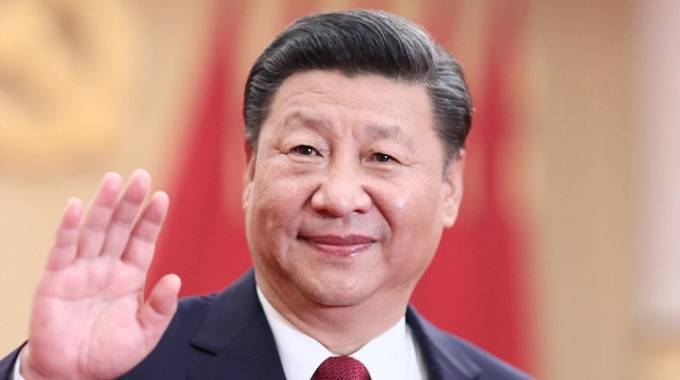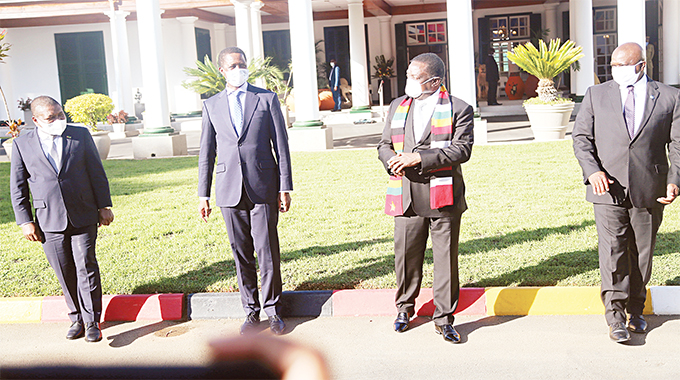China’s Covid-19 measures reconfigure global diplomacy

Tatenda Chinyani
On Monday Chinese President Xi Jinping addressed the World Health Organisation and laid out what could constitute a reconfiguration of global diplomacy.
Call it a futuristic “health diplomacy”.
President Xi himself described the following terms: “China takes it as its responsibility to ensure not just the life and health of its own citizens, but also global public health.”
As such, he announced five key measures that will make China the centre of the world on the basis of its leadership in the health sector.
The marquee measure will see China providing US$2 billion over two years to help with Covid-19 response and with economic and social development in affected countries, especially developing countries.
Secondly, China will work with the UN to set up a global humanitarian response depot and hub in China, ensure the operation of anti-epidemic supply chains and foster “green corridors” for fast-track transportation and customs clearance.
Thirdly, China will establish a cooperation mechanism for its hospitals to pair up with 30 African hospitals and accelerate the building of the Africa CDC headquarters to help the continent ramp up its disease preparedness and control capacity.
Fourthly, will lead the development and deployment of Covid-19 as “a global public good”.
Lastly, China will work with other G20 members to implement the Debt Service Suspension Initiative for the poorest countries.
While announcing these measures, President Xi constantly made reference to developing countries which are clearly at the centre of China’s policies.
A vacuum that needed to be filled
That China has been a rising global power, which is now set to overtake the US in the next couple of decades is common knowledge.
The race between the US and the Asian giant has so far been about economic and military might as well as geopolitical leadership.
Until now health diplomacy or investments in the sector were an understated phenomenon or factor in the global leadership contest.
The Covid-19 has however brought the best in China and — well — the worst in the United States of America.
The latter bungled big time in handling the pandemic and has gone on to take huge losses in terms of human lives and the economy.
With elections forthcoming, President Donald Trump is on shaky ground owing to the ravages of Covid-19.
A few months ago he looked solid, buoyed by strong economy.
That is, until he ignored intelligence about the dangers of the pandemic and responded too late and too poorly when the disease hit the shores of America.
The responsibility, nay, liability lies squarely with the leadership of America. The attempts to deflect criticism at home and abroad through lies, subterfuge and racism, have failed miserably.
Further, US President Donald Trump has been exposed as a vacuous, narcissistic, confused and erratic leader at a moment that the world is facing one of the gravest crises seen by mankind.
China’s stepping up to lead the world is not only natural and timely but also strategic.
The world needed leadership, going forward.
It is no doubt that the post-Covid-19 world begged for leadership to tackle a remarkably different manner in which governments and peoples work together.
President Xi took the initiative and declared:
“Let’s make concerted efforts to protect the life and health of people in all countries. Let’s work together to safeguard planet Earth, our common home. Let’s work together to build a global community of health for all!”
This is a serious invocation that students of politics will have to look at for a long time to come. China is clear about its role and the model that it wants to lead.
Locating Africa in the picture
Using President Xi’s speech as a reference point, and also looking at its actions on the ground, it is clear Africa has a special place in the global future.
Previous analyses have made Africa a hapless victim in the “new Cold War” and suchlike analytical frames.
The framing is wrong insofar as both it denies agency on the part of African nations, as it also ignores China’s openness to mutually beneficial relations.
The latter means that China recognises that it cannot use the old imperialist power designs to achieve greatness and world leadership.
Its approach is predicated on friendship and cooperation, in other words, forging a new coalition of the willing to engage the reconfigured world.
Yet, it is also up to African countries, including Zimbabwe to read carefully these developments and ensure that they can carve a place for themselves.
It is also important for African leaders to embrace new ways of doing things in terms of governance, economic management and technology. This requires a transitional mindset.
With China rising, Africa needs to be rising as well.








Comments